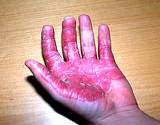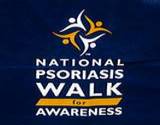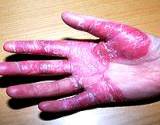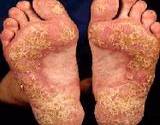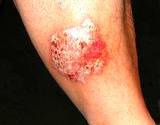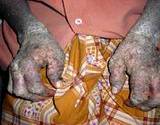|
Grandma's Home Remedy for Psoriasis
You'll be amazed how quickly this home remedy for psoriasis works. Grandma discovered a spicy ingredient to add to your favorite dishes and even your coffee that just might clear up that nasty psoriasis. I read an article in my local newspaper about a woman that had psoriasis so bad on her feet and hands that her nails actually fell off. She went to doctor after doctor trying to get some relief but no matter what ointment or drugs she was prescribed nothing seemed to help. She finally read an article about turmeric helping people clearing up some of the most severe cases of psoriasis. She decided to give it a try and low and behold it worked! Within only a few weeks of sprinkling turmeric on her food and even sprinkle some in her coffee everyday she noticed a remarkable recovery. Her nails came back stronger and better than she had seen them in a long time. Her skin finally cleared up and swears she was using nothing but this simple home remedy for psoriasis. However, those that take the anticoagulant warfarin should avoid taking turmeric. There is also some people that have an allergy to this spice, so be cautious when trying this home remedy for psoriasis. Turmeric is a yellow spice that is an important ingredient in curry powder. A component of turmeric, curcumin, has anti-inflammatory as well as antioxidant activity and shows promise against psoriasis and other skin conditions. Another home remedy for psoriasis is to soak the infected area in hot bath water with oatmeal. You can buy the ready-made oatmeal bath in any drugstore or you can just use regular rolled oats steeped in hot water. Don't ever use deoderant soap or anti-bacterial soap. Always use a mild soap with no perfume or use a baby bath liquid. The very best bath soap to use is goat milk soap with olive oil. It's also important to try to keep your skin moisturized after soaking in the oatmeal bath. Aloe is a wonderful natural skin moisturizer and can be bought as a lotion or you can buy pure aloe from your health food store. Just lather is all over the effective area after your bath and it will relieve your skin discomfort. Grandma's Skin Rashes Causes and Treatments may be helpful if you are suffering from differint types of skin problems.
What is Psoriasis?As you can see from the picture above psoriasis can become extremely severe. Besides the discomfort you will experience it's also embarrassing. Many people don't understand psoriasis and think it could be contagious. Therefore someone suffering from psoriasis may be shunned. Psoriasis is not contagious. It is caused by faulty signals from the immune system and cannot be passed through personal contact. There are actually 5 different types of psoriasis:
Regardless of type, psoriasis usually causes discomfort. The skin often itches, and it may crack and bleed. In severe cases, the itching and discomfort may keep a person awake at night, and the pain can make everyday tasks difficult. Discovering a safe and effective home remedy for psoriasis can be a life changing expereince. Psoriasis is a chronic, meaning lifelong, condition because there is currently no cure. People often experience flares and remissions throughout their life. Controlling the signs and symptoms typically requires lifelong therapy. Therefore, once you find a home remedy for psoriasis that helps relieve the symptoms it's important to keep doing what works for you and just because the symptoms disappear you should still keep using the psoriasis treatment. Immune Mediated. Researchers now believe that psoriasis is an immune-mediated condition. This means the condition is caused by faulty signals in the body's immune system. It is believed that psoriasis develops when the immune system tells the body to over-react and accelerate the growth of skin cells. Normally, skin cells mature and are shed from the skin's surface every 28 to 30 days. When psoriasis develops, the skin cells mature in 3 to 6 days and move to the skin surface. Instead of being shed, the skin cells pile up, causing the visible lesions. Some people who have a family history of psoriasis never develop this condition. Research indicates that a "trigger" is needed. Stress, skin injuries, a strep infection, certain medications, and sunburn are some of the known potential triggers. Medications that can trigger psoriasis are anti-malarial drugs, beta-blockers (medication used to treat high blood pressure and heart conditions), and lithium. Dermatologists have seen psoriasis suddenly appear after a person takes one of these medications, gets a strep infection, or experiences another trigger. All types of psoriasis, ranging from mild to severe, can affect a person's quality of life. Living with this lifelong condition can be physically and emotionally challenging. Itching, soreness, and cracked and bleeding skin are common. Nail psoriasis can be painful. Even the simple act of squeezing a tube of toothpaste can hurt. One woman described her psoriasis as feeling like "a bad sunburn that won't go away." The very best tips I can offer at this point for Psoriasis treatment is don't let the stress of this skin condition get you down. Depression and stress can only make this condition worse.
DISCLAIMER: The statements made here have not been approved by the Food and Drug Administration. These statements are not intended to diagnose, treat or cure or prevent any disease. This notice is required by the Federal Food, Drug and Cosmetic Act.
|





